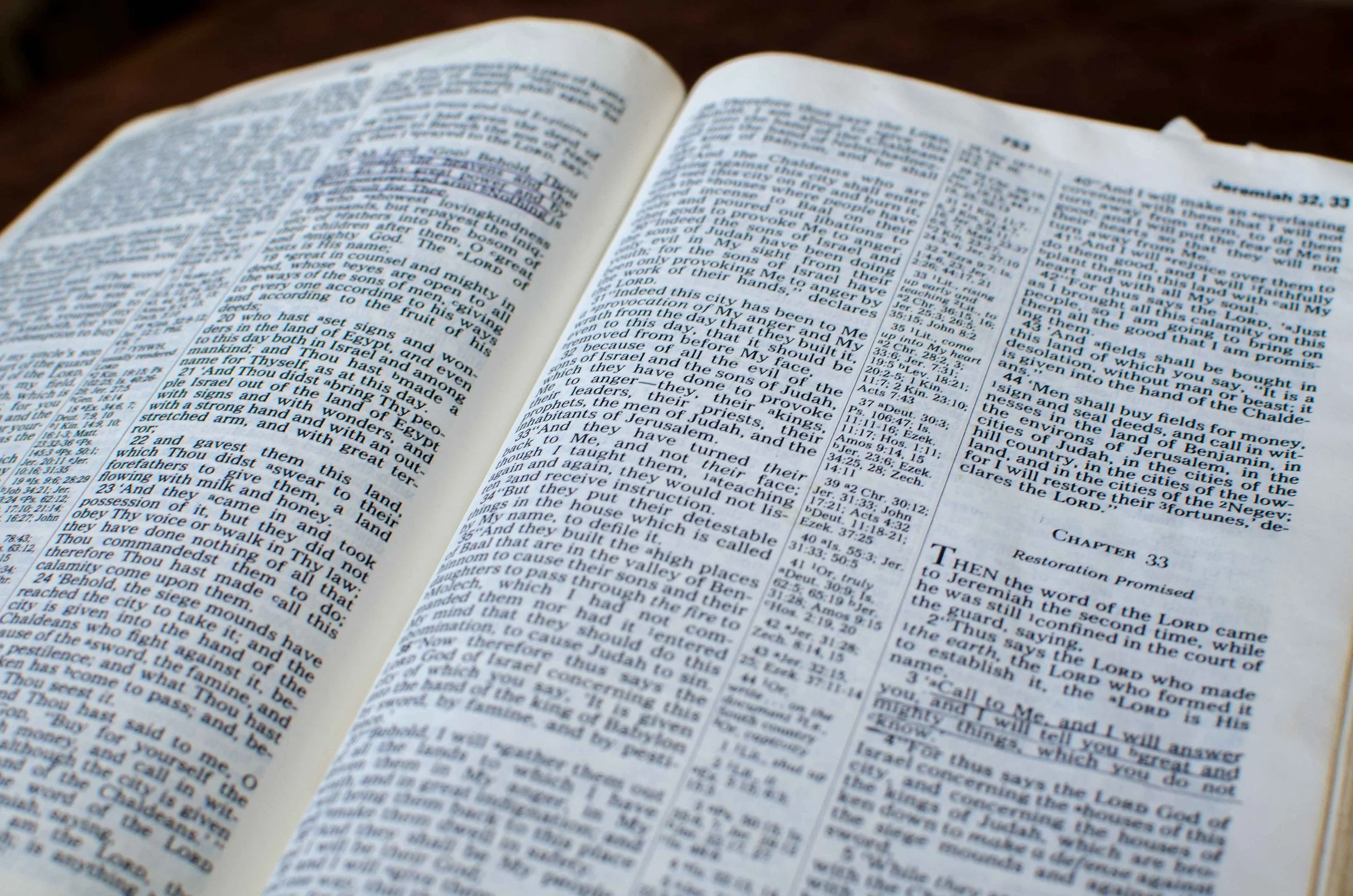Walking with the Psalmist
Last month I began a discussion on the first song in the book of Psalms in the Old Testament. While we do not know for sure who wrote this psalm, it is clear, by its inclusion in the Scripture, it is important. I explained that Psalm 1 describes two men, a righteous one and a wicked one. Last month I concentrated on the righteous man and found ten characteristics that a righteous man will have. This month, I want to look more closely at the wicked man.
“1 How blessed is the man who does not walk in the counsel of the wicked,
Nor stand in the path of sinners,
Nor sit in the seat of scoffers!
2 But his delight is in the law of the Lord,
And in His law he meditates day and night.
3 He will be like a tree firmly planted by streams of water,
Which yields its fruit in its season
And its leaf does not wither;
And in whatever he does, he prospers.
4 The wicked are not so,
But they are like chaff which the wind drives away.
5 Therefore the wicked will not stand in the judgment,
Nor sinners in the assembly of the righteous.
6 For the Lord knows the way of the righteous,
But the way of the wicked will perish.”
Pixabay
What sort of characteristics describe the wicked man.
1. They are not like the righteous man.
Verse 4 begins with the phrase, "The wicked are not so." It would logically follow that all of the traits that were listed to describe the righteous man are not traits the wicked man has. In other words this man does not love God's word, they hang out with other's who do not love God's word and they are not firmly rooted in God's law.
2. They are like chaff.
What exactly is chaff? In this Old Testament context the word chaff was used to describe the outer hulls of seeds and other debris separated from the seed when threshing grain. Before the age of huge farm machinery, threshing was a laborious task done by hand on a threshing floor. The stalks of grain were beaten with a piece of wood called a flail. Chaff is not useful for anything and was thrown away.
It might seem to us, calling a person chaff, is rather mean, but these words were inspired by a holy and righteous God. The point was to give us a comparison with no doubt involved. Righteous is righteous and wicked is wicked.
3. They are driven away by the wind.
I think we can derive two ideas from this. First of all, the chaff in the threshing process was often swept up to blow away in the wind. It was meant to be discarded, just as our modern combine separates the chaff from the seed out in the field. Have you ever driven by a field when the combine is working and noticed a cloud of dust flying up in the air? That is not just dirt!
The second idea that came to my mind is, often people who do not know God are driven to and fro by the changing winds of life. They try anything and everything to fill the emptiness that exists inside of them and they most often are looking out for their own interests willing to step on others to feel fulfilled.
4. The wicked will not stand in the judgment.
The idea of judgment has become the elephant in the room. No one wants to talk about judgment. No one wants to discuss the consequences of sin. How often do you hear a sermon about sin, hell or the anger of a righteous God? Not as often as we used to, I'd venture to say. While I think we need to show love, wait for the right opportunities and reply with gentleness, we also can't stop talking about the idea that God is a holy and perfect God and we are not. That was and still is the reason Jesus became a man, walked on this earth, died on a cross and rose again. If we stop talking about judgment we might as well stop talking about Jesus.
Jesus Christ is who differentiates us from all other religions. It is His blood that covers a righteous man and it is only His blood that allows the righteous man to stand at the final judgment. The wicked man will not stand because he has not recognized Christ as the way, the truth and the life.
For us to say, "I don't believe in hell or a judgment," is like saying, "Seventeen people didn't get shot at a high school in Florida." Just because it is terrible, doesn't mean our ignoring it or wishing it away makes it any less a reality.
5. The wicked will not stand in the assembly of the righteous.
I am not sure in this case whether it is similar to the judgment, they won't be able to, because their wickedness separates them from the righteous, or if it has to do with their own desire. The wicked do not want to stand in the assembly of the righteous. We have churches closing their doors at an alarming rate. For further info on this Dr. Richard Krejcir of churchleadership.org wrote an eye opening article titled Statistics and Reasons for Church Decline. Ken Ham of Answers in Genesis, wrote a book a few years ago titled Already Gone, which addresses the exodus of many young people from the church. If those who would be righteous aren't even staying in the assembly of the righteous, then the wicked certainly won't be drawn to the church.
St. Albans Cathedral - England trip 2012
This is just my take on the verse. It is more likely that the wicked won't be able to stand in the assembly of the righteous because of their wickedness.
6. The wicked will perish.
This isn't a pleasant thought. It might be easy to think of someone like Hitler perishing, because we could easily point out his wickedness, but the scripture is clear:
“for all have sinned and fall short of the glory of God,”
“For the wages of sin is death, but the free gift of God is eternal life in Christ Jesus our Lord.”
“that if you confess with your mouth Jesus as Lord, and believe in your heart that God raised Him from the dead, you will be saved;”
While the standing of the wicked man compared to the righteous man is not pleasant, there is hope. If you are a Christ follower, then you are already familiar with that hope. You are also in a position to help someone who doesn't have that hope. Live your life in Christ out loud, so all the world can see. I leave you with these verses, which I will feature next week on my Mulling It Over column.
“23 But refuse foolish and ignorant speculations, knowing that they produce quarrels.
24 The Lord’s bond-servant must not be quarrelsome, but be kind to all, able to teach, patient when wronged,
25 with gentleness correcting those who are in opposition, if perhaps God may grant them repentance leading to the knowledge of the truth, 26 and they may come to their senses and escape from the snare of the devil, having been held captive by him to do his will.”







